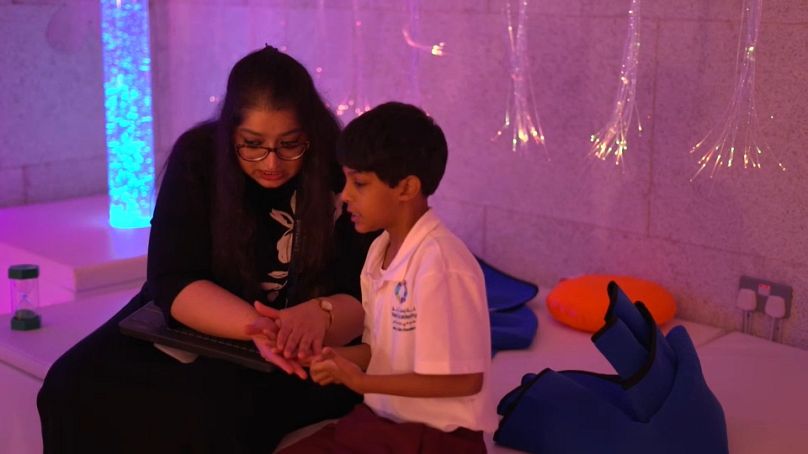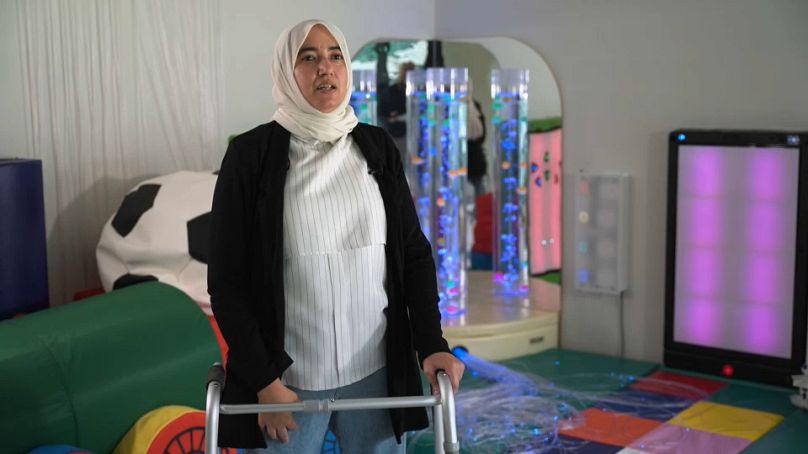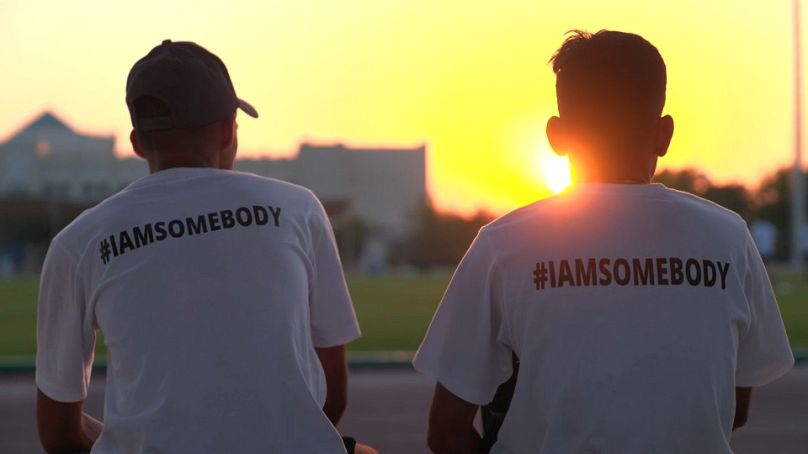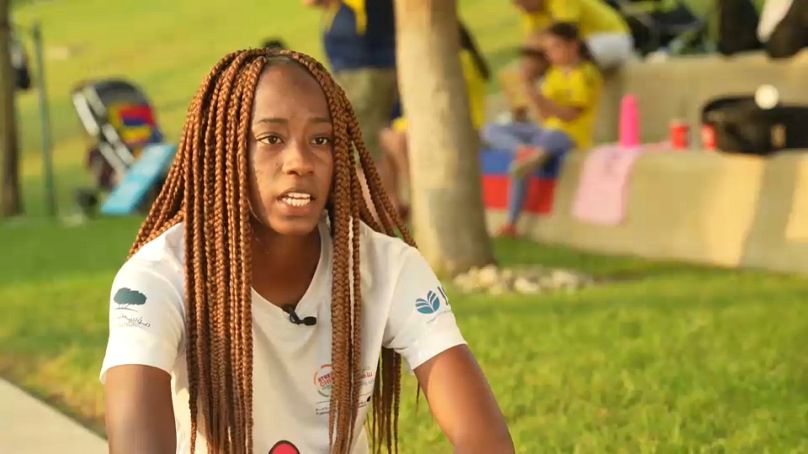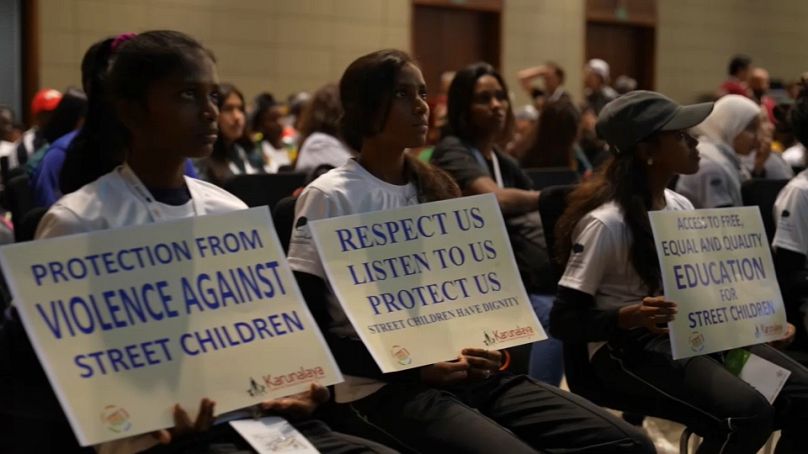Could Qatar be the most accessible FIFA World Cup tournament ever? People with disabilities have been part of the planning of stadia, and the Street Children World Cup highlighted the striking similarity of issues affecting street-connected children worldwide.
One of the key goals of FIFA World Cup Qatar 2022 is to make sure everybody has an equal opportunity to enjoy the tournament.
 ADVERTISEMENT
ADVERTISEMENT
 ADVERTISEMENT
ADVERTISEMENT
Accessibility and empowerment are hugely important for the organisers of the event and it's hoped that the legacy of this will live on far beyond the referee blowing his whistle at the end of the final on December 18th**.**
Ahmed Habib is an avid football fan who can’t wait for Qatar 2022 to get underway.
"I think that everything is in place for this to be the most accessible edition of the FIFA World Cup. Work began a very long time ago by including members of the disabled community, and by putting in place the highest standards at the tournament venues. But also by making sure that the tournament plays a transformative role in ensuring that the whole country becomes more accessible."
Ahmed works as a Senior Media Content Specialist for the Supreme Committee for Delivery & Legacy, the government body that oversees everything related to the World Cup. He hopes Qatar 2022 will provide a platform to usher in a new era for the country.
"It’s very rare to have stadiums like we do here in Qatar. All eight stadiums are brand new, and provide an opportunity for wheelchair users like me to sit in multiple areas of the stadium, and to have multiple vantage points to watch the games". Says Ahmed.
Sensory room
But making a stadium accessible goes beyond just having a row of wheelchair-friendly seating. The roar of the crowd is one of the many reasons people love watching live sporting events, but it’s not for everyone.
At Education City Stadium, a sensory room provides a calm and safe space for young fans with autism and other cognitive disabilities, to reduce their anxiety during the world’s largest sporting event.
The Renad Academy is a school based in Doha that helps children with autism. It provides education and specialized services to students, as well as training and support to parents.
Sana Abu Majeed is a Periodic Occupational Therapist who works at the Renad academy and she was approached to help design the sensory room at Education City Stadium. She began working on the room in 2020, in order to get it ready for last year’s Arab Cup.
"Most of the people that are neurodivergent can get overwhelmed by noises, can get bothered by lighting, can find crowded settings really discomforting. That’s where a sensory room comes into play. These environments are meant to calm and relax individuals." She explains.
Qatar Disability Resource
Sabika Shaban founded Qatar Disability Resource, to bring together the country’s disability stakeholders. She knows there will be bumps along the way.
"So, the movement for accessibility in itself is a challenge. We’re talking about really diverse needs. And trying to understand that accessibility is more than just installing a ramp and providing signs in braille. It’s really important, it’s just a lot more sophisticated than that."
Sabika says a lot of grassroots work has already been done to promote accessibility for future football tournaments.
One prominent voice is that of Ghanimeh El-Taweel. She’s an Affiliate Instructor, at Hamad Bin Khalifa University and a self-proclaimed ‘troublemaker’ because she loves to question things and challenge the status quo.
El-Taweel participated in the last mile audit of the Education City Stadium and offered her recommendations on changing signage, lighting, and the designated routes for people with disabilities.
"We assessed the metro and the tram. So... I think the tram, implemented what is called a wheelchair tray. You’re supposed to ask for it before you actually ride the tram, but we told them this should not be asked for, it should be available at all times. It was locked behind closed doors. There‘s no need to lock them, so that will also change."
El-Taweel strongly believes in the motto, ‘nothing about us, without us,' the meaning of which she describes.
"It means we’re at the table from the beginning. We are not here just to tick a box: ‘oh, we had people from the disability community come and see it, so we’re done.’ No, we are at the beginning. Our input is valuable. We know our needs more than anybody else. And we look at the bigger picture and we look at the personal experience."
The hope now is that first-hand experience will lead to a more enjoyable World Cup viewing experience, for everyone.
Street Child World Cup
Football is often referred to as the "beautiful game" because of the visual artistry of its best players. But, for Street Child United, the beauty of football goes far beyond that. The organisation uses the sport as a global platform for street children - empowering them to speak out and demand the opportunities, rights, and support they deserve.
With the eyes of the world on Qatar for the FIFA World Cup, one man, John Wroe, is determined that some of that focus will go to street children taking part in the Street Child World Cup 2022.
13 girls’ teams and 15 boys’ teams, came from all over the globe, but for many of them this was a difficult process, because access to identity documents was a huge issue.
Every story and every struggle, is unique. Sandihya Shankar is the captain of India Girls.
"They said Karunalaya Home takes care of kids and they rescued us and got us there. I did not have any proof (any official identity documents). I needed a birth certificate, aadhaar card, and community certificate, I had none of these. After I came to Karunalaya, they helped me get an aadhaar card, then I struggled to get a passport. They needed my dad’s death certificate, caste certificate, and birth certificate for which there was a lot of struggle."
Despite coming from diverse countries, what’s striking is the similarity of issues affecting street-connected children.
Brooke Reid is the Activation Program Manager for Qatar Foundation, who are hosting the Street Child World Cup at their Oxygen Park space.
"A key part of it is recognizing that these young people often don’t have access to things that they need in life to improve their condition, whether it's access to education, the right to an identity, and being part of this tournament gives them that opportunity.
Team Bangladesh, three of the young people did not have access to birth certificates and in turn passports because within the legal structure there, they don't have that for people who are living on the street and don't know their families.
So, through the advocacy that's being done by the NGOs in the country, then enabling young people, 1.5 million young people across Bangladesh to have that access to those papers."
Jenifer Mena is a member of the Colombia girls’ team, who made it to the final. Despite being beaten in their last game by a highly competitive Brazilian side, the experience has provided lasting lessons for her.
"Through this tournament, I’ve realised that countries are interconnected, we live the same history. And what we want is equality where women can feel safe and participate in football, which is the most common sport and the sport that fills us with happiness, love and satisfaction. And gives us a peaceful environment." Jenifer explains.
As for the boy's teams? In the end, a triumphant Egypt just edged past Pakistan.
But this tournament is about so much more than just football. In a model similar to the United Nations, the teams have their own closed-door congress to discuss issues directly affecting vulnerable young people living in street situations. And for these kids, perhaps most importantly, it’s also a safe space where they can share their personal experiences.
At the end of the tournament, the young people put forward their demands in a General Assembly. They are calling for fundamental human rights: identity, protection from violence, access to education, and gender equality.
John Wroe is the Co-founder and CEO, of Street Child United. if we can change the way that street children are seen, we can begin to change the way that street children are treated.
"We believe that no child should ever have to live and work on the streets. We are looking for a future for all children. Free from fear, free from violence, free from abuse. We volunteered at a street child organisation in South Africa in 2010.
We met a boy called Andile who had been on the streets for ten years. He was 14 when we met him. So, from the age of four, he lived on the streets.
And we played football. And afterward, Andile said, 'when people see me on the streets, they say I am a street child. But then when they see me playing football, they say, I am a person. I'm a person like you'.
And that was the crux of the idea. We realized that football could be used to change the way that people see Andile. And if we can change the way that street children are seen, we can begin to change the way that street children are treated."
Bringing together these street-connected children, and using this experience to advocate for real, tangible change, John Wroe’s Street Child World Cup 2022 is proof that football can indeed have the power to transform reality.












